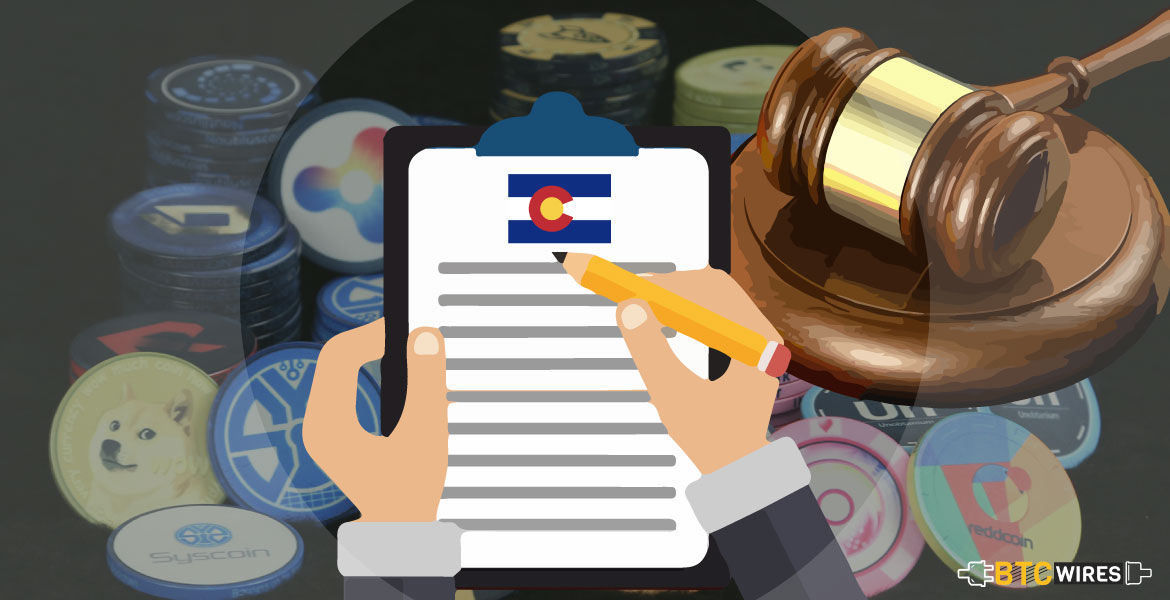The US State of Colorado has recently introduced the “Colorado

The US State of Colorado has recently introduced the “Colorado Digital Token Act” which provides some “exemptions from the state securities laws for cryptocurrencies,” as per the text of the bill.
Colorado’s legislators introduced the bill in the state’s 72nd General Assembly and the bill was sponsored by three senators. Among other proposals, the bill also provides “limited exemptions” to cryptocurrencies from certain securities laws. A portion of the bill says:
“The bill provides limited exemptions from the securities registration and securities broker-dealer and salesperson licensing requirements for persons dealing in digital tokens.”
According to the bill, the current state securities laws make businesses “face regulatory uncertainty.” Additionally, after defining digital tokens, the bill makes a note of the costs and benefits of coming down hard on cryptocurrencies. “The costs and complexities of state securities registration can outweigh the benefits” for cryptocurrency businesses that are simply in the state market for consumptive purposes, says the text of the bill. It defines consumptive purpose as a desire “to provide or receive goods, services, or content, including access to goods, services, or content.”
Optimistic about the favourable change for the cryptocurrency industry, the Digital Token Act asserts that the new exemptions will help businesses that use cryptoeconomic systems to gather capital easily to help them grow and expand.
The Colorado Sun publication elaborated, “If a token doesn’t qualify under the Colorado Safe Harbour” law, it will need to be “analyzed under typical securities law, or what is known as the Howey Test.”
However, this is not Colorado State’s first attempt at crypto regulation. In April of 2018, Colorado lawmakers introduced the “Virtual Currency Exemption Money Transmitters Act.” The bill was initially passed by a single vote, but according to local media sources, was later withdrawn after some of the legislators changed their minds about it.
In June, Gov. John Hickenlooper created the Council for the Advance of Blockchain Technology. The state confirmed that the group was assembled to discuss legal regulations and boundaries inside which the cryptocurrency industry and related businesses could be allowed to operate. The state said that the group was made to make “a comprehensive legal framework to support blockchain technology that considers potential applications and boundaries of the technology and protections for consumers.”
